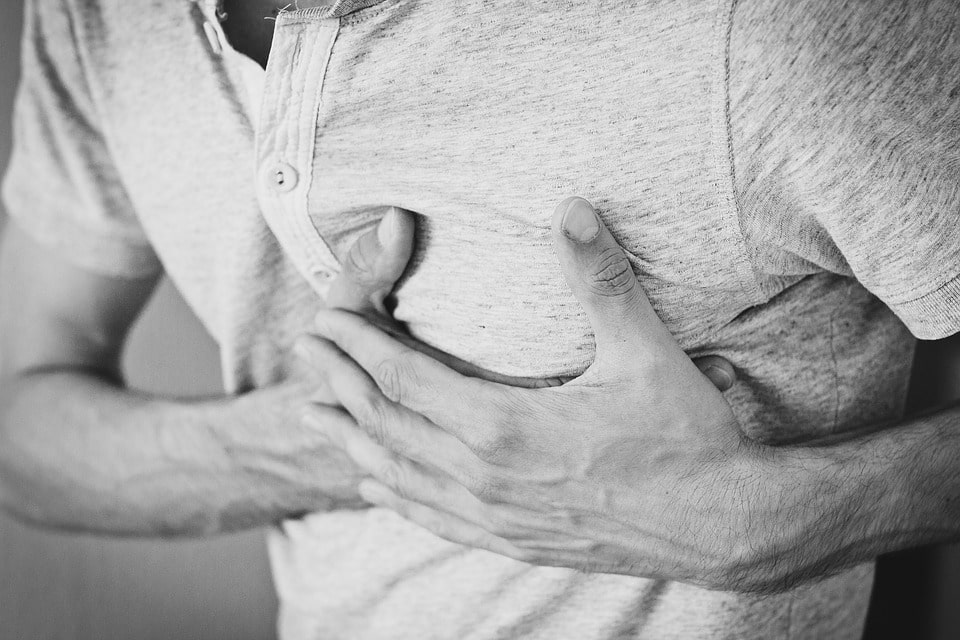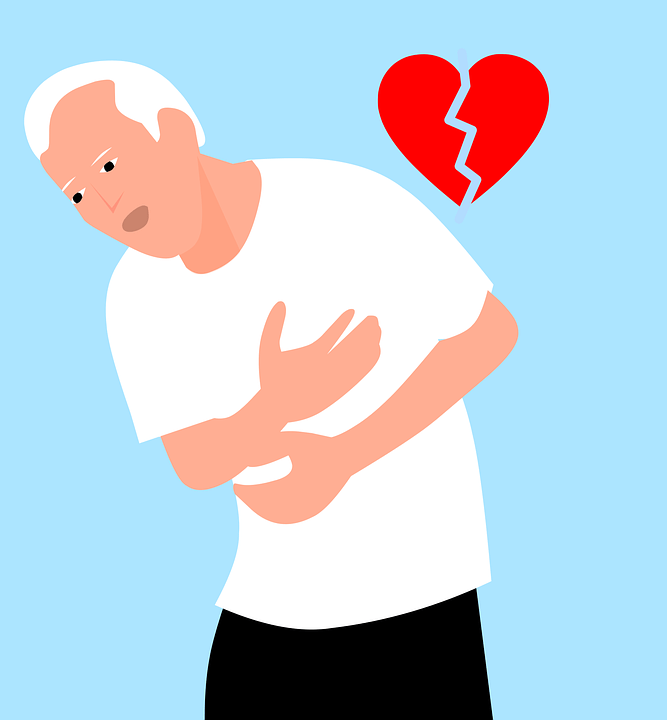Heart attacks have been quite common in the previous few years among the global population. They are, unfortunately, the leading cause of death worldwide. They are a result of our stressed lifestyles and poor eating habits.
Improve your lifestyle to safeguard your cardiovascular health by eating a healthy diet and reducing stress. It’s also important to detect the symptoms of heart failure, which normally appear a month before the heart fails:
.
.
.
.

1. Insufficiency of oxygen
If your lungs aren’t getting enough oxygen, your heart won’t get the blood it needs to function. As a result, if you’re having trouble breathing, see your doctor right away.
2. Symptoms of the cold and flu
These two symptoms are common in persons who are about to have a heart attack.
3. Pressure in the chest
This is a telltale sign that a heart attack is on the way. If you have chest pain, you should see your doctor right once.
.
.
4. Deficiency
When the arteries constrict, blood flow is restricted. As a result, the muscles aren’t getting the nutrients they require, potentially leading to heart failure. As a result, if you’re constantly tired and weak, you should see a doctor.
5. Dizziness and cold sweats
Poor circulation obstructs appropriate blood flow to the brain, which is necessary for proper brain function.
6. Tiredness
.
.
If you’re still weary and drowsy after sleeping or relaxing for a while, and it lasts for days and days, you may have a problem with blood flow to your heart.
Heart attack prevention is critical; recognizing and treating the above-mentioned symptoms early will considerably reduce the risk of a heart attack.
.
.
When the blood supply to the heart is cut off, a heart attack develops. The most common cause of blockage is a buildup of fat, cholesterol, and other chemicals in the arteries that supply the heart, forming plaque (coronary arteries).
.
.
A plaque can break and generate a clot, obstructing blood flow. Parts of the heart muscle can be damaged or destroyed if blood flow is disrupted.
Although a heart attack, also known as a myocardial infarction, can be fatal, therapy has vastly improved over the years. If you think you’re experiencing a heart attack, contact 911 or get emergency medical care right away.
.
.
Symptoms
The following are some of the most common signs and symptoms of a heart attack:
In your chest or arms, you may feel pressure, tightness, pain, or a squeezing or hurting sensation that may move to your neck, jaw, or back.
Nausea, indigestion, heartburn, or abdominal pain are all symptoms of a stomach bug.
Breathing problems
I’m breaking out in cold sweat.
Fatigue
Sudden dizziness or lightheadedness

The signs and symptoms of a heart attack differ.
